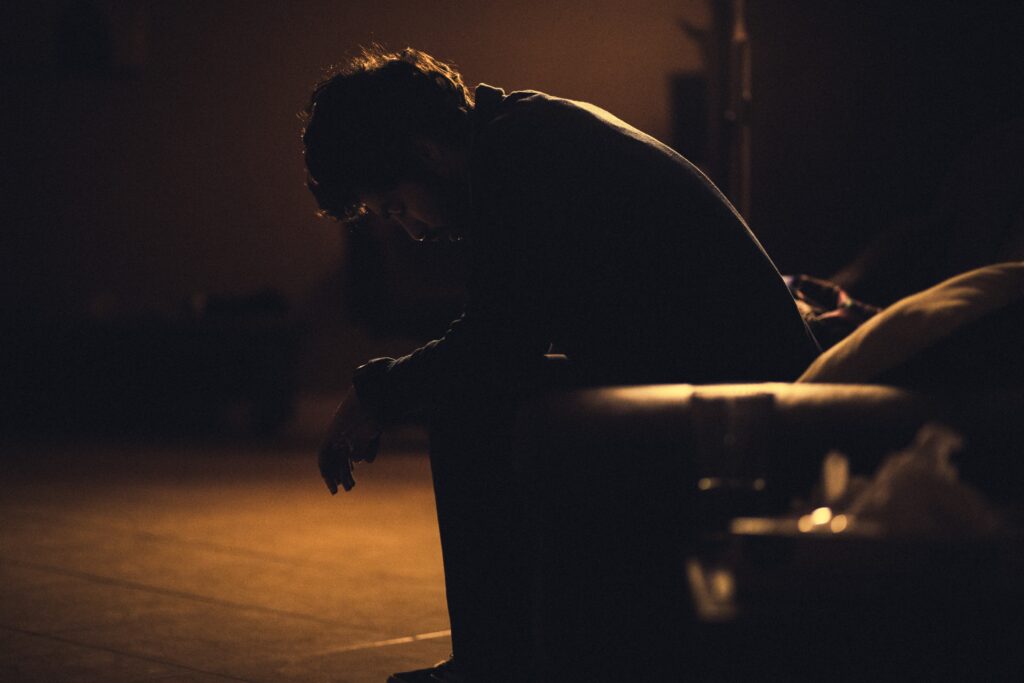6 Dangers Of Ignoring Depression (Untreated Mental Illness)

Let’s take a look at these two situations:
- Andy, who has been involved in a motor vehicle accident and sustained a leg fracture
- Chelsea, who has trouble concentrating in class and is having prolonged sadness after her parents’ death
If both of them decided to take some time off from school, which one of them would the people be more sympathetic towards?
Most people believe it is “normal” for someone with a physical illness to take time off school to recover quickly. By contrast, depression-related breaks are not viewed positively. The person is either deemed as “lazy” or that their problems are “all in their head.” This stigma surrounding mental illness makes people hesitant to seek help.
According to an article published by World Health Organization in 2020, there is an increase in the number of people with a mental disorder, which makes up approximately 1 billion. However, relatively few people worldwide have access to quality mental health services. Over 75% of people with mental, neurological and substance use disorders in low- and middle-income countries receive no treatment.
With that said, let’s delve into what happens when depression goes untreated:
- Your physical health is affected
The Lancet Psychiatry Commission (2019) mentioned that people with untreated depression have a heightened risk of physical diseases. They have a 1.4- to 2-fold higher risk for obesity, diabetes, and cardiovascular diseases than the general population. According to an article in Psychology Today, depression is associated with elevated levels of inflammatory substances that contribute to heart disease. Cardiac function, or the ability of the heart to meet the metabolic demands of the body, is adversely affected by stress-related hormones, by changing glucose metabolism in energy-hungry heart cells.
- It causes a strain on relationships

Did you ever find yourself in a relationship where depression set in after it had already started? A couples psychologist, Sarah Rattray explained that someone with depression is usually lethargic, uninterested in participating in activities with the significant other, has low energy, and becomes irritable. Furthermore, a study by Kolakowski in 2014 reported that seventy-five per cent of depressed individuals experienced a lack of sex drive. This originates from multiple causes related to depression: hidden resentment, shame about sex, poor body image, feeling exhausted, taking medications, and performance anxiety. All these characteristics cause a serious toll on the romantic relationship, and it’s easy for the other person to feel emotionally neglected and uncared for.
- It robs you of your motivation
Have you ever woken up in the morning feeling that your inner battery is depleted? Your mind is buzzing with many things that you have to do on that day, which makes you feel overwhelmed. Consequently, you don’t feel like doing anything, so you crawl back into bed. You need motivation, and when you are depressed, you don’t have much. Your body produces a high level of cortisol in response to stress which leads to fatigue and decreases the amounts of feel-good hormones: dopamine and serotonin. If you’re already unmotivated, falling behind on tasks may worsen things. There is simply no motivation to get things done which can lead to feelings of worthlessness or hopelessness.
- Career damage or loss of work

As stated above, depression may cause a loss in motivation which manifests in all areas of your life, including your work life. If depression is not addressed, it may significantly affect how well one performs at work. It leads to absenteeism and has a negative effect on how well employees make decisions, manage their time, carry out physical duties, engage with others, and communicate. Depressed workers tend to put things off, miss deadlines, or may have a strained relationship with their coworkers (Center for Workplace Mental Health, n.d.).
- You may experience alcoholism and drug problems
What if you experience emotional pain that you feel the only thing you can do is, drink the sorrow away? You use alcohol to “treat” your depressive symptoms such as anxiety, restlessness, or sleep disturbance. Perhaps you use drugs as a way to escape your overwhelming reality. What happens when you abuse alcohol? Excessive drinking of alcohol causes a change in your brain’s neurotransmitters. Serotonin and dopamine levels will fluctuate rapidly with alcohol consumption. The mood is balanced by serotonin, and the reward system of your brain is controlled by dopamine. If you are already depressed, unusually high or low levels of these chemicals can worsen your symptoms of depression. (Stacy, 2022).
- Higher risk of suicide

Have you encountered a person who is in the deepest pit of hopelessness and talks about wanting to die? Depression is characterised by a lack of cognitive flexibility. People who suffer from depression dwell on everything that has gone wrong in their lives, including past losses, failed relationships, and traumatic experiences from their early years. Depression also intensifies the experience of pain. People who are depressed are more inclined to believe that suicide is the only solution to end their suffering and emotional distress (Psychology Today, n.d.).
Final thoughts
A mental health expert can assist in managing the effects and symptoms of depression. Don’t hesitate to seek help, your quality of life can be improved significantly.
REFERENCES
Brito, J., & Cassata, C. (2022). How Depression Affects Relationships and Tips to Help. Psych Central. Retrieved 3 September 2022, from https://psychcentral.com/depression/how-depression-affects-relationships?c=41988034825.
Center for Workplace Mental Health. (n.d.). Depression. Retrieved 3 September 2022, from https://workplacementalhealth.org/mental-health-topics/depression.
Depression and Physical Health. Psychology Today. (2022). Retrieved 3 September 2022, from https://www.psychologytoday.com/gb/basics/depression/depression-and-the-body.
Firth, J., Rosenbaum, S., Galletly, C., Siddiqi, N., Stubbs, B., & Killackey, E. et al. (2019). Protecting physical health in people with mental illness – Authors’ reply. The Lancet Psychiatry, 6(11), 890-891. https://doi.org/10.1016/s2215-0366(19)30387-6
Harvey, S. & Hageman, D. (n.d.). The Connection Between Depression and Motivation. greenbrooktms. Retrieved 3 September 2022, from https://www.greenbrooktms.com/blog/the-connection-between-depression-and-motivation.
Kolakowski, S. (2022). The Warning Signs That Depression is Affecting Your Relationship. Scientific American Blog Network. Retrieved 3 September 2022, from https://blogs.scientificamerican.com/mind-guest-blog/the-warning-signs-that-depression-is-affecting-your-relationship/#five.
Mosel, S. (2022). Alcohol & Depression: The Connection & Dual Treatment Near Me. American Addiction Centers. Retrieved 3 September 2022, from https://americanaddictioncenters.org/alcoholism-treatment/depression.
Depression and Suicide. Psychology Today. (n.d.). Retrieved 3 September 2022, from https://www.psychologytoday.com/gb/basics/depression/depression-and-suicide.
World Mental Health Day: an opportunity to kick-start a massive scale-up in investment in mental health. Who.int. (2022). Retrieved 3 September 2022, from https://www.who.int/news/item/27-08-2020-world-mental-health-day-an-opportunity-to-kick-start-a-massive-scale-up-in-investment-in-mental-health#:~:text=Mental%20health%20is%20one%20of,every%2040%20seconds%20by%20suicide.




Responses